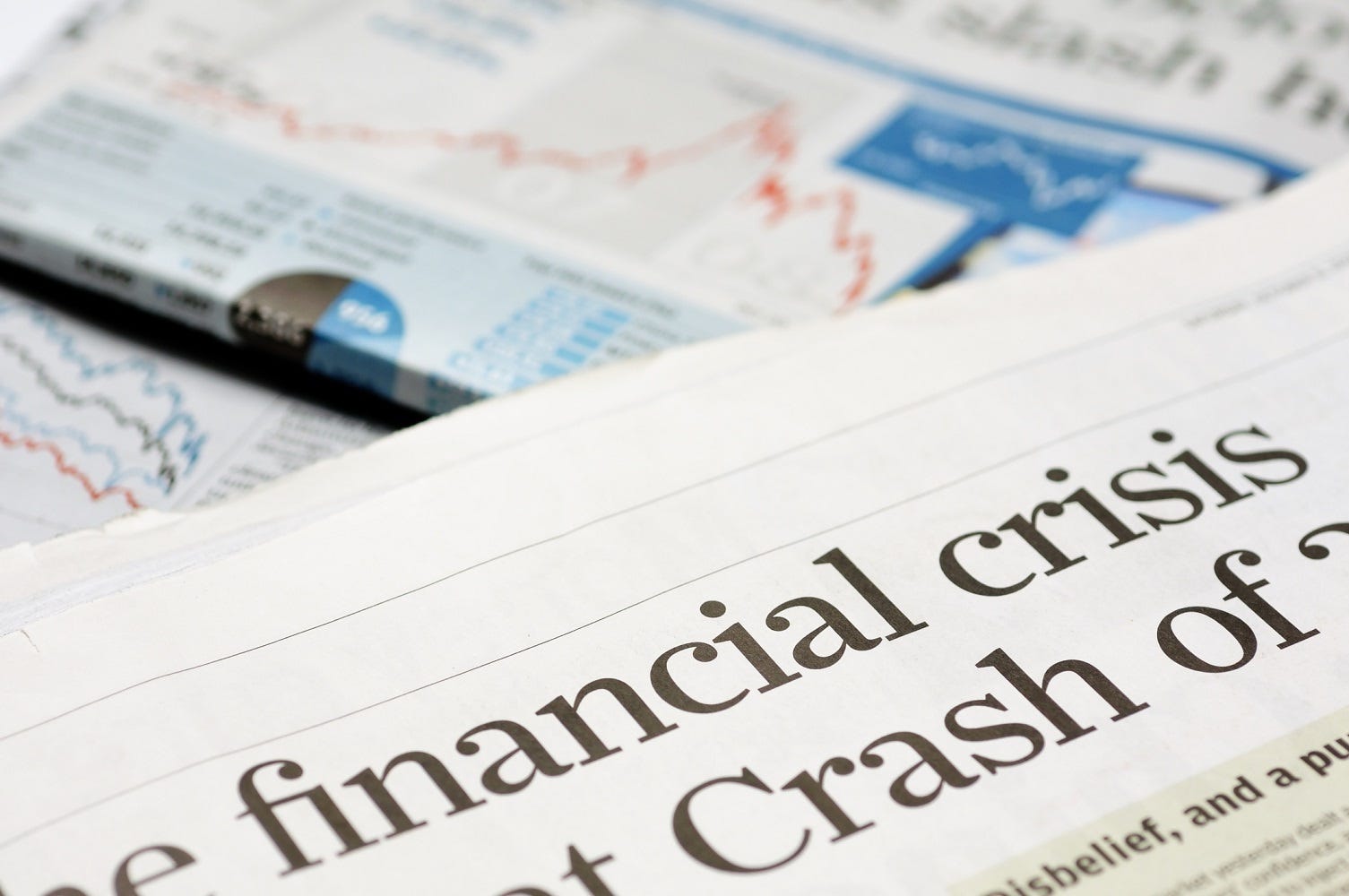LATEST FINANCIAL NEWS
Recession worries prompt stock sell-off
[ad_1]
Is a recession coming? Wall Street sure thought so Wednesday.
The Dow lost 800 points, posting its worst percentage drop of the year while the Standard & Poor’s 500 and the Nasdaq each lost about 3%.
Worrying economic indicators from overseas coupled with an ominous signal in the bond market sent stocks into a tailspin.
“There was this realization that the rest of the globe is slowing faster than people expected, which leads to part two, the yield curve inverting for the first time since the financial crisis,” said Ryan Detrick, senior market strategist for LPL Financial. “That, historically, occurs ahead of a recession.”
Investors are worried about a mix of things, including the effect of the trade war between the United States and China, unrest in Hong Kong, uncertainty around the Brexit in Europe and the projected pace of interest rate cuts from the Federal Reserve.
The Dow Jones industrial average fell 3.05% to finish at 25,479, while the Standard & Poor’s 500 index declined 86 points to close at 2,841. The tech-heavy Nasdaq composite ended at 7,774, down 242 points.
The rout Wednesday comes less than two weeks after all three indexes recorded their then-worst sell-offs of 2019 on Aug. 5. Wednesday’s declines were the second-biggest of the year for the S&P 500 and the fourth-largest for the Nasdaq.
Bank stocks were among the worst performers: Citigroup fell 5.3%, Bank of America declined 4.7% and JP Morgan Chase lost 4.2%.
Many factors weigh on the market, making it jumpy.
Bond troubles
Investors poured money into government bonds Wednesday, triggering a troubling sign: The yield on the 10-year Treasury dipped below the yield on the two-year one. That hasn’t happened since 2007 and historically signals an economic downturn is coming.
A similar scenario unfolded in the U.K.’s bond market Wednesday.
The yield on the 30-year Treasury bond hit a new low Wednesday at 2.04%, also a warning, said J.J. Kinahan, chief market strategist at TD Ameritrade.
“It shows that people are buying bonds as a protective mechanism,” he said.
Global slowdown
Stocks were poised for a sell-off even before the bell opened trading Wednesday because two reports overseas renewed fears of a global economic slowdown.
Germany – Europe’s largest economy – reported that its gross domestic product, a measure of an economy’s health, went negative in the second quarter.
In China, the country’s industrial output in July hit a 17-year low, Detrick said. Retail sales and investment in real estate and other fixed assets weakened, an indication the world’s second-biggest economy is feeling pressure.
“We like a worldwide economy when it comes to buying cheap shoes,” Kinahan said. “But it’s a worldwide economy on the bad things, too. It can come onto our shores.”
Trade war
Underpinning these factors from Wednesday are the trade tensions between the United States and China. The machinations from both sides have whipsawed markets.
Stocks rallied Tuesday after the Trump administration postponed some tariffs on Chinese imports until Dec. 15, instead of enacting them in September. Still, that’s temporary, said Kathy Bostjancic, chief U.S. financial economist at Oxford Economics.
“In no way is this a resolution or truce in the trade war with China,” she said.
Traders cheered the delay anyway, because retailers and shoppers would avoid increased, tariff-related prices during the holiday season.
Americans would have “no appetite” for higher prices, Macy’s CEO Jeff Gennette said Wednesday after the company reported disappointing earnings. The retailer’s share fell 13% percent for the day.
Geopolitical concerns
Other issues add to the anxieties about economic growth: unrest in Hong Kong, the Brexit drama and Argentina’s recent surprise election and record-making stock market crash Monday.
“It heightens the uncertainty and tensions when those are already quite high,” Bostjancic said.
All eyes on the Fed and consumers
The yield-curve inversion and disappointing data abroad probably caught the eye of the Federal Reserve, said Justin Halverson, founding partner of Great Waters Financial.
The central bank cut a key interest rate last month as expected, but Fed Chairman Jerome Powell “didn’t indicate as strongly as Wall Street would have preferred that there will be further rate cuts,” Halverson said.
“This may lead Powell and the Fed to rethink that,” he said.
In a tweet Wednesday, President Donald Trump downplayed the role of the trade war and placed blame on the Fed.
“We are winning, big time, against China. Companies & jobs are fleeing. Prices to us have not gone up, and in some cases, have come down. China is not our problem, though Hong Kong is not helping. Our problem is with the Fed. Raised too much & too fast. Now too slow to cut,” Trump wrote in a tweet.
The U.S. consumer is propping up the economy, said Moira McLachlan, senior investment strategist at AllianceBernstein. Americans remain robust financially. Hiring is strong, consumer confidence is up and wages are increasing moderately.
“But if the trade friction continues and results in companies holding off on hiring and higher wages, that would be concerning,” she said.
[ad_2]
Source link









